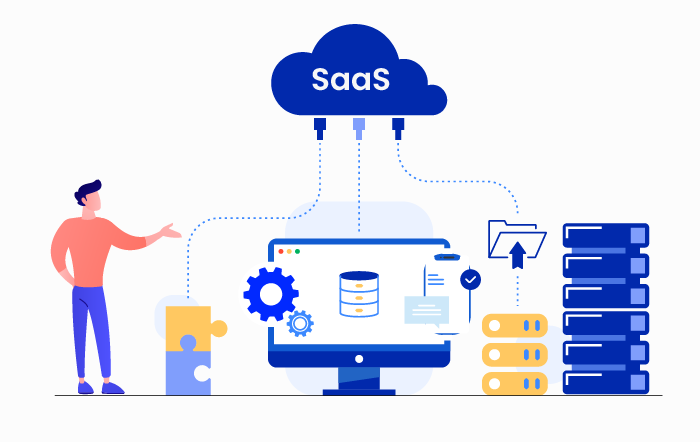How to Choose the Right SaaS App for Your Business Needs?
In today’s fast-paced business world, using the right tools can make or break your company’s success. Software-as-a-Service (SaaS) apps are becoming increasingly popular for businesses of all sizes. These cloud-based applications offer businesses flexibility, scalability, and cost-effectiveness, providing a wide range of solutions across various industries. However, choosing the right SaaS app for your business can be challenging given the vast array of options available.
Understand Your Business Needs
Before even considering a SaaS app, it’s essential to take a step back and assess your business’s core needs. The first and most important step in selecting a SaaS app is to define exactly what you need from the app. Without a clear understanding of your goals and requirements, you might end up with a tool that doesn’t fully serve your business.
Ask yourself these questions:
- What problems do I want to solve with this app?
- What specific tasks or processes do I need to improve or automate?
- What are the pain points in my current operations?
- Who will be using the app, and what are their specific needs?
For example, if your business requires an efficient way to track customer data, a Customer Relationship Management (CRM) tool like Salesforce might be what you need. If you want to improve project management across teams, a tool like Asana or Trello could be the answer. Take time to evaluate your current processes and pinpoint areas where a SaaS app can add value.
Once you know your business needs, you can start narrowing down the options to those that align with these objectives. Don’t rush through this step. The better you understand your needs, the easier it will be to find the right SaaS solution.
Compare Features and Functions
After defining your needs, the next step is to compare the features and functions of the different SaaS app development services available. Not all apps are created equal, and the features they offer can vary significantly. It’s important to look beyond just the marketing materials and do a deeper comparison of the core capabilities.
1. Core Features
The first thing to evaluate is whether the SaaS app offers the key features that match your requirements. If you’re in need of project management software, for example, does the app allow you to create tasks, assign deadlines, track progress, and collaborate with your team? If your business requires a marketing automation tool, does it support email campaigns, social media scheduling, and analytics?
Make a list of must-have features based on your business needs, and ensure that any SaaS app you consider covers all these areas. Most apps offer a free trial, so take advantage of this to test how the app performs in real-world conditions.
2. Usability and User Interface
How easy is it to use the app? Even the most feature-packed SaaS tool won’t be effective if it’s too complicated for your team to use. The user interface (UI) plays a critical role in how quickly your employees can adopt the tool and how efficiently they can use it.
Look for apps with an intuitive UI and simple navigation. It’s worth investing time to find an app that feels natural and doesn’t require extensive training to get started. A SaaS tool with a user-friendly interface will also help your team work faster and reduce the chances of making errors.
3. Integration with Other Tools
Businesses often use multiple software tools to manage different aspects of their operations. Whether it’s accounting software, communication platforms, or CRM systems, your SaaS app should be able to integrate with the other tools your company uses.
Check if the app allows easy integration with your existing software ecosystem. Many apps offer APIs or built-in connectors that allow them to sync data with other platforms. If an app doesn’t integrate easily with your current tools, it could cause problems down the line, such as data inconsistencies or inefficiencies.
4. Scalability
As your business grows, your needs will evolve. This is why scalability is another important feature to look for in a SaaS app. The app should be able to grow with you. Whether that means adding more users, handling more data, or supporting more complex workflows, the app should be able to accommodate these changes without significant upgrades or overhauls.
Look for SaaS providers that offer flexible pricing models or tiered plans. This way, you can start with a basic plan and gradually upgrade as your business expands.
5. Security
Data security is one of the most critical factors to consider when choosing any software, especially when dealing with sensitive customer information. Ensure that the SaaS provider follows the best practices for data security, including encryption, secure authentication, and regular backups. Additionally, check if the app complies with relevant data protection regulations, such as GDPR, CCPA, or HIPAA, depending on your industry and location.
A SaaS app with strong security measures will help protect your business from data breaches and minimize the risk of costly legal or reputational issues.
6. Customer Support
Customer support is another crucial element in choosing the right SaaS app. It’s inevitable that you will run into issues or need assistance with setup, troubleshooting, or upgrades. Having reliable customer support ensures that any problems you encounter are addressed promptly. If you’re working with a custom mobile application development company, responsive support becomes even more important, as they can provide tailored solutions and updates that align with your specific business needs.
Look for SaaS providers that offer multiple channels for support, such as live chat, email, and phone support. You should also consider the availability of self-help resources like knowledge bases, FAQs, and video tutorials. Ideally, the provider should offer support during your business hours, so your team doesn’t get stuck.
Choose the Right SaaS App for Your Business Needs
After comparing the features, usability, integrations, scalability, security, and customer support of various SaaS apps, you should have a shortlist of the tools that are best suited to your needs. But making a final decision requires considering a few additional factors:
1. Pricing
Pricing is always a key factor in any business decision. SaaS apps typically offer subscription-based pricing models, where you pay monthly or annually based on your usage. When evaluating pricing, ensure that the app fits within your budget while offering the features you need. Be wary of hidden costs or extra fees for advanced features, integrations, or extra users.
While it might be tempting to choose the cheapest option, it’s important to weigh the value the app provides. Sometimes, paying a bit more for a higher-quality app can be more cost-effective in the long run, especially if it boosts productivity or improves customer satisfaction.
2. User Feedback and Reviews
Reading customer reviews can provide valuable insights into the app’s performance, ease of use, and support. Look for reviews from businesses similar to yours and pay attention to both positive and negative feedback. Consider how the SaaS app handles issues and how quickly they resolve them.
Review sites like G2, Capterra, and Trustpilot are great places to read unbiased opinions. Additionally, reach out to colleagues or industry peers to ask for their experiences with certain SaaS tools.
3. Free Trial or Demo
Most SaaS apps offer free trials or demo versions so that businesses can test the product before committing. Taking advantage of this option is a great way to get a feel for the app’s interface, performance, and suitability for your business needs.
During the trial period, test the app thoroughly, using the features that are most relevant to your workflow. Get feedback from the people who will actually be using the app day-to-day, and assess how well it integrates into your current systems.
How a SaaS Developer Can Help Businesses
While selecting the right SaaS app is crucial, businesses can also benefit from working with a SaaS developer if they have unique needs that off-the-shelf software can’t fully address. A SaaS developer can help you design a custom solution tailored specifically to your business.
If you choose to go down the custom SaaS development route, a skilled developer can work with you to build an app that fits seamlessly with your workflow, integrates with your existing systems, and supports your long-term business goals. Custom development also gives you more control over features, security, and scalability.
However, custom apps come with their own set of challenges, including higher upfront costs and longer development timelines. It’s important to carefully consider whether a custom solution will truly provide more value than a pre-built SaaS app.
Conclusion
Choosing the right SaaS app for your business is not a decision to be taken lightly. It requires careful consideration of your specific needs, the features and capabilities of the software, and factors like security, scalability, and pricing. By taking the time to compare different options, reading user reviews, and testing the apps, you can ensure that you select a solution that helps your business run more efficiently and grow over time.
Remember, SaaS apps are meant to serve your business, not the other way around. Choose a tool that complements your operations, solves your challenges, and helps you meet your goals. By doing so, you set your business up for success in the ever-evolving digital landscape.


